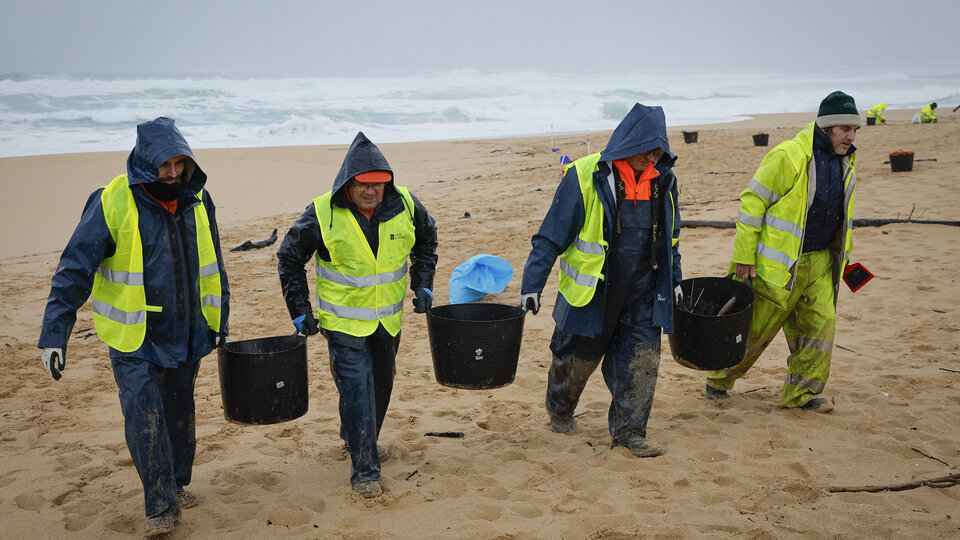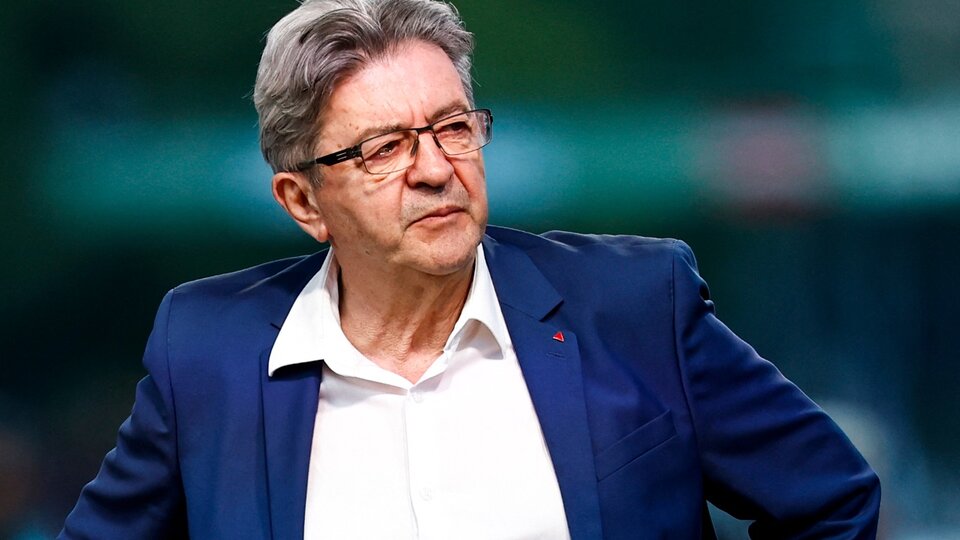Maritime transport accounts for 80% of international trade: hundreds of millions of containers loaded with materials that could accidentally end up on the ocean floor are transported by ships every year.
This happened after the Liberian-flagged Toconaw ship lost 26,250 kilograms of plastic pellets off the Portuguese coast: millions of small pellets reached Spanish shores in Galicia, Asturias, Cantabria and the Basque Country.
According to data from the World Shipping Council (WSC) – a business association that brings together the world's largest shipping companies – andBetween 2008 and 2022, 1,566 containers were lost in the oceans annually. In 2022, the number decreased to 661 units out of a total of 250 million containers transported.
Other serious incidents include the OneE OPUs, which in 2020 lost more than 1,800 containers due to adverse weather conditions, and Maersk Eseen, which for the same reason lost about 750 containers in 2021.
How does it affect the environment?
In most cases, containers that fall into the water end up on the seabed, and their contents end up reaching the coast dragged by ocean currents, explained Marta Martín Borrejon, head of the oceans department at Greenpeace Spain.
The biggest impact is that the container materials decompose and begin to form part of the food chain, which is an environmental and human health problem: we end up “feeding” that waste. Many plastics are eaten by birds and fish and then die.
The problem with the pellets
Pellets are small plastic balls used as raw material to manufacture all kinds of products. It is estimated that the container that crashed in Portugal contained 26 tons of pellets in 1,050 bags, causing a flood of millimeter pellets. Birds and fish eat them when they think they're eggs, and the rest ends up as tiny plastic particles that “sneak” everywhere.
The United Nations' International Maritime Organization is working to ensure that the pellets are classified as hazardous materials and are required to be transported in the hold of ships and never on board, according to the head of Greenpeace. It is also recommended to reduce the consumption of plastics in general.
European Community Governance
The European Commission (EC) noted on Tuesday that national authorities in each country are responsible for managing the discharge of pellets, while Brussels is working on medium- and long-term measures to reduce microplastic pollution.
Last October, the EU executive proposed a regulation to reduce discharges and limit microplastic pollution, which still needs to be negotiated by the Council of the EU and the European Parliament.
This initiative is part of the Pollution Elimination Action Plan adopted by the Authority in 2021, which aims to reduce by 30 percent the amount of microplastics emitted into the environment, which are used to fill granules in artificial turf sports surfaces. Flakes, shine, fertilizer And phytosanitary products, toys, medicines or medical devices.
Political reactions
Socialist MEPs Cesar Loena and Nicolas González Casares are asking the European Community executive to activate “a European protocol to stop the pollution caused by pellets that already affects several EU countries,” as the pellets also appear to be appearing on French coasts.
Both MEPs also requested an “urgent” meeting with the European Commissioner for the Environment, Virginius Sinkevicius, given the “lack of coordination in Xunta and the denial of a pollution emergency.” Izquierda Unida, through MEP Manu Pineda, demanded that the commission investigate Xunta's management of the spill.


:quality(85)/cloudfront-us-east-1.images.arcpublishing.com/infobae/TTMX4RVB62WDAXL4WZ2WRAVRSE.jpg)
:quality(85)/cloudfront-us-east-1.images.arcpublishing.com/infobae/OVPEHD3JLVENTCHIRGQMS6DMJY.jpg)

